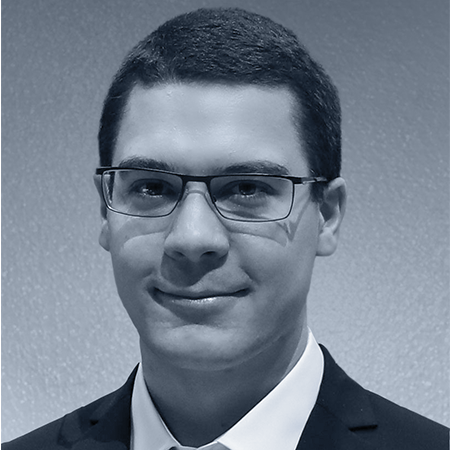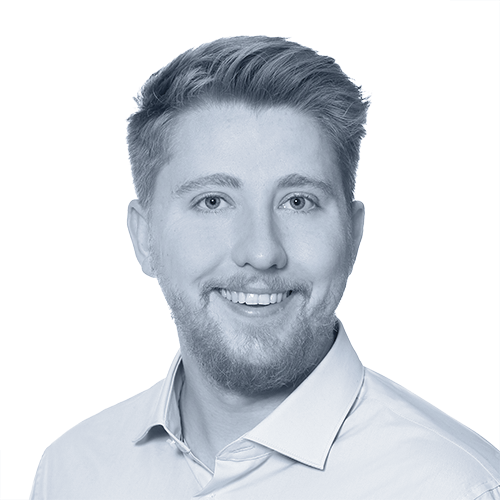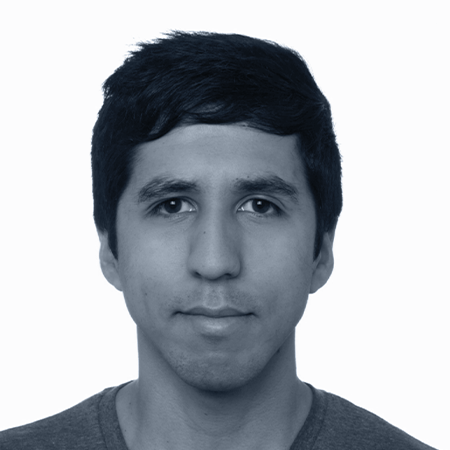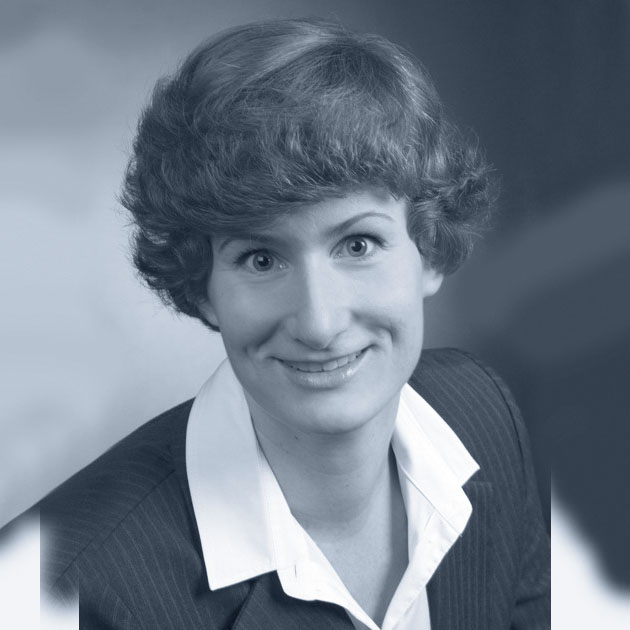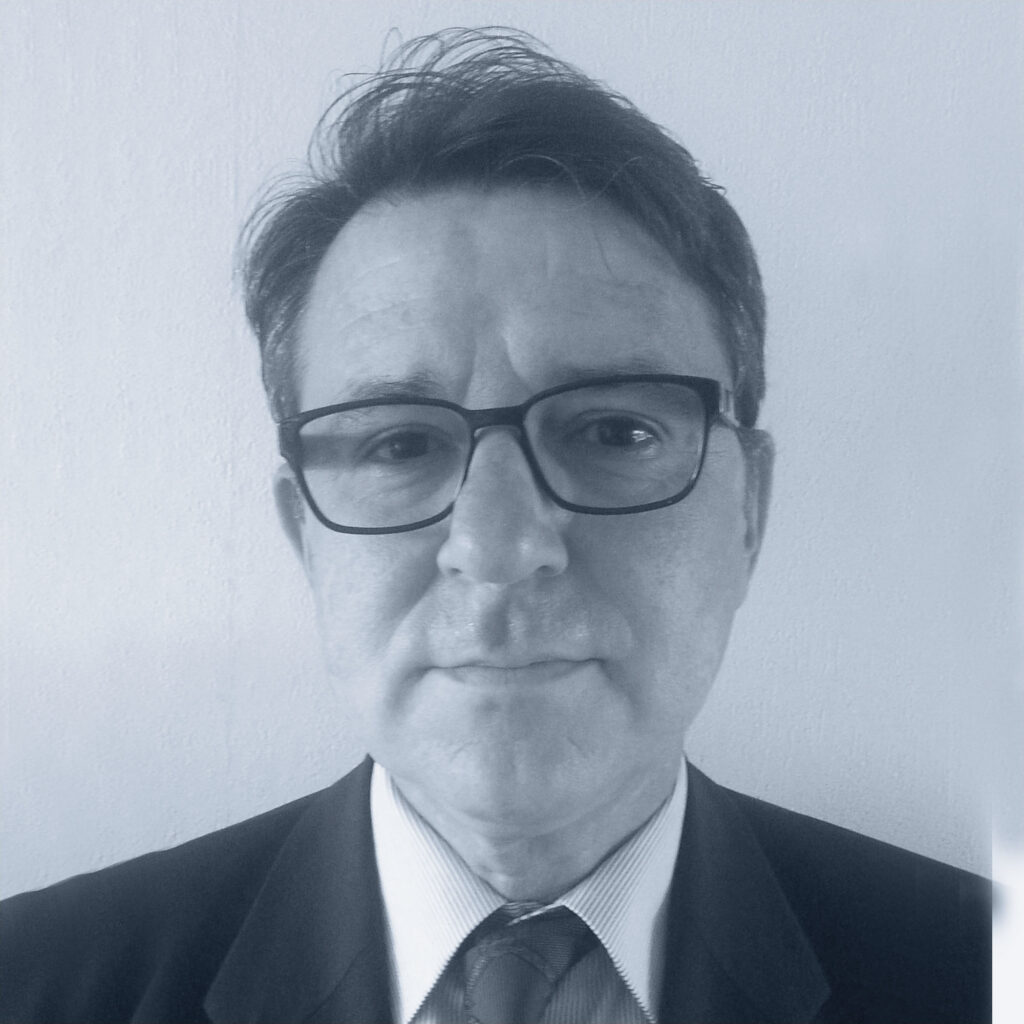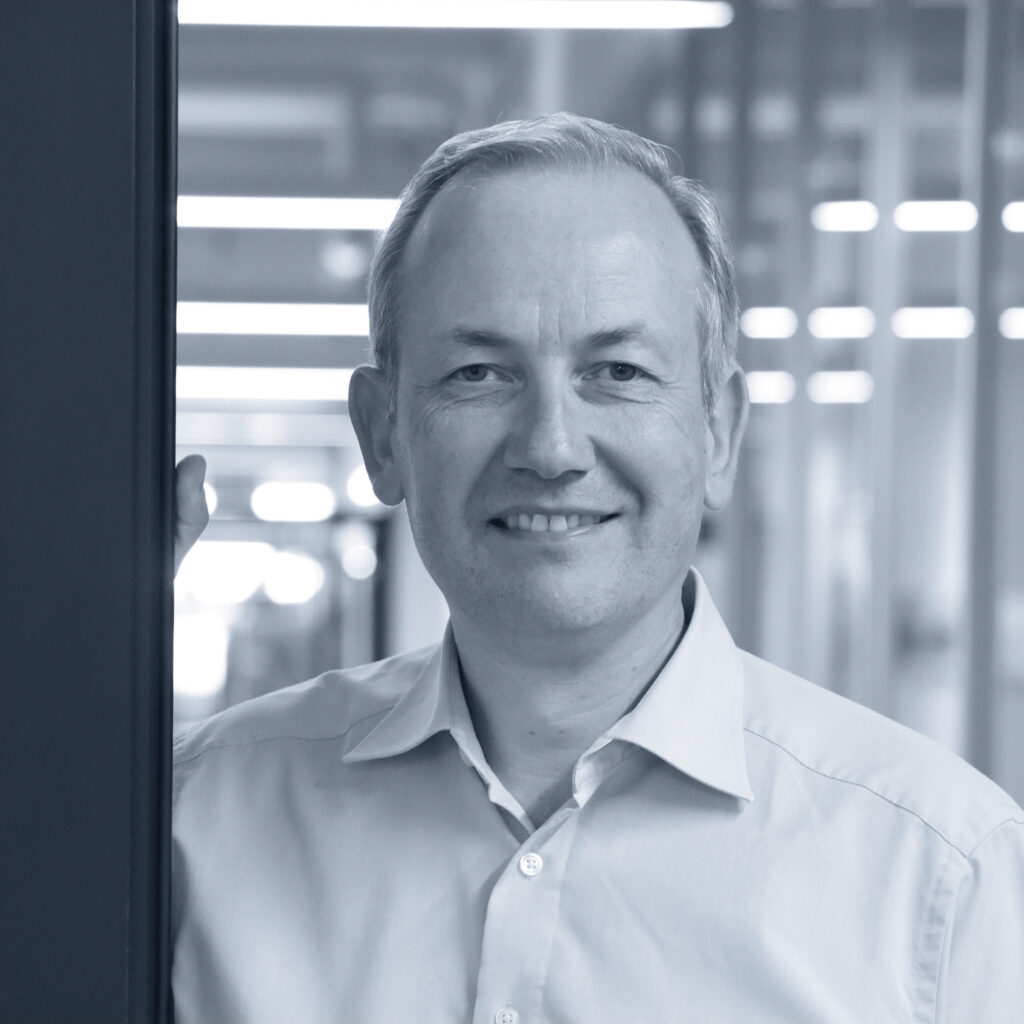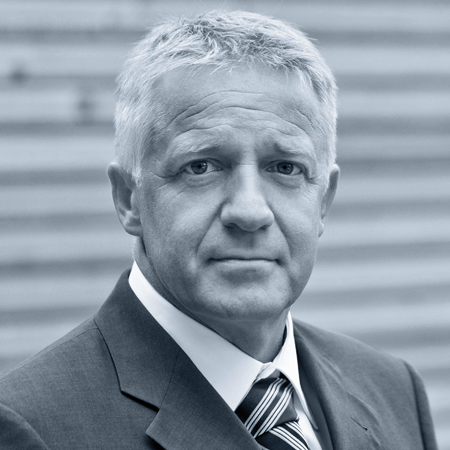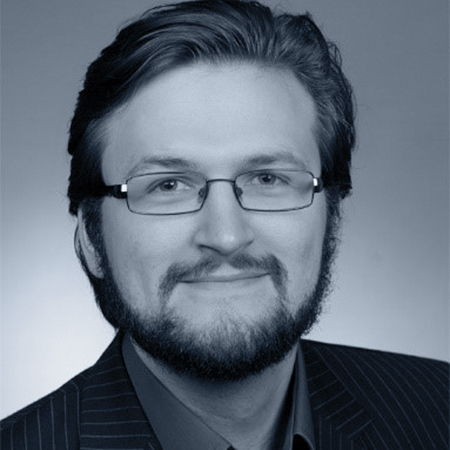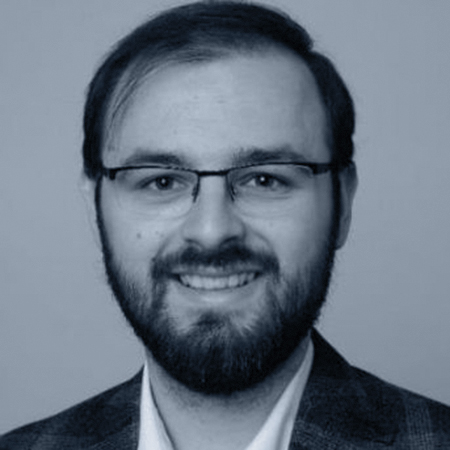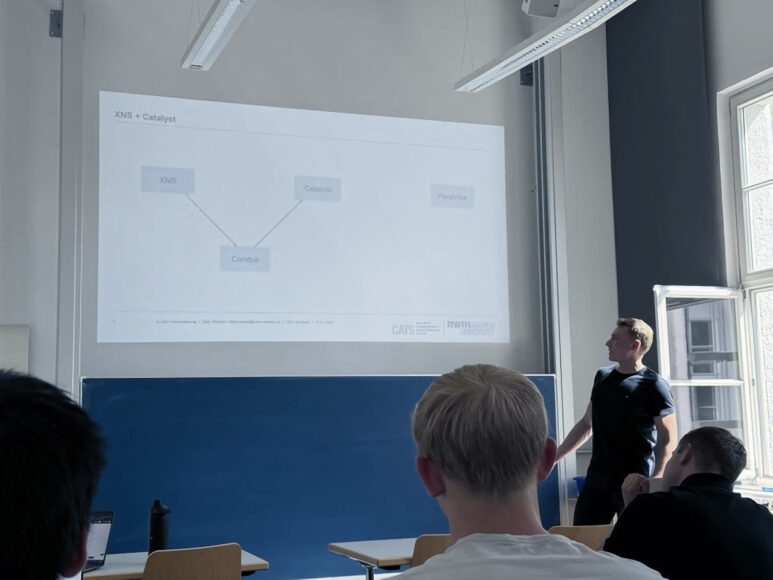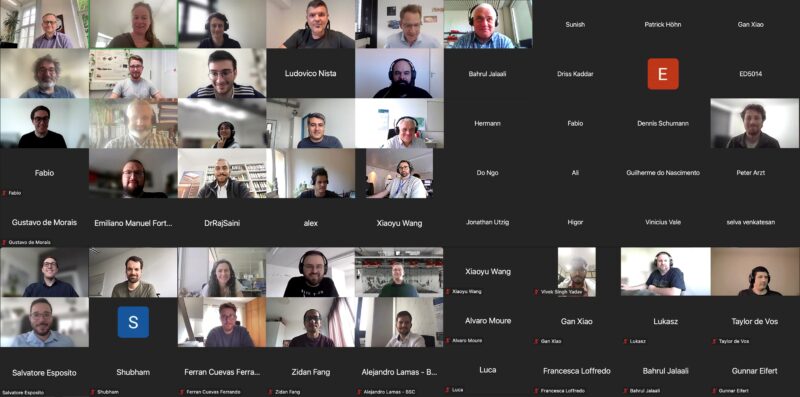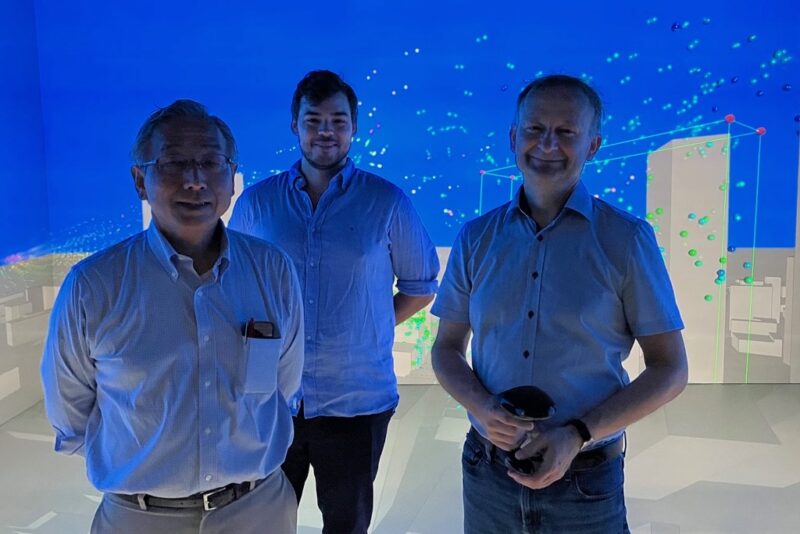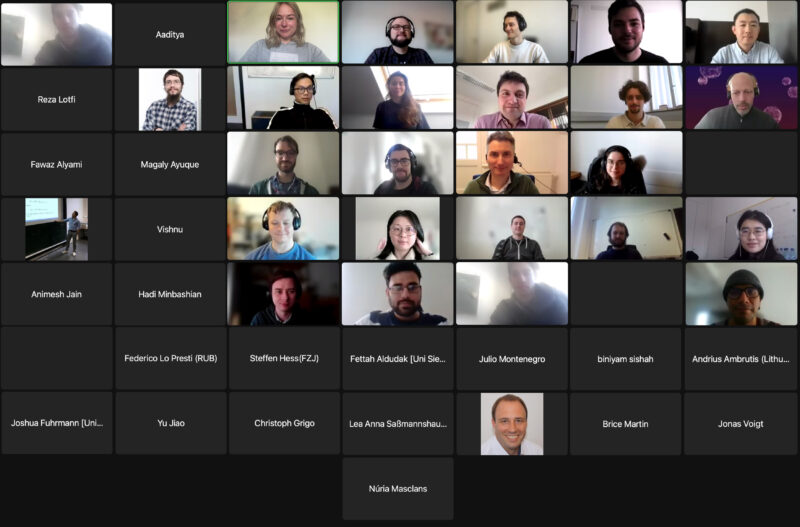30. July 2024
and RWTH Aachen University
Simulation and Data Lab
The SDL Fluids advances the use of HPC to enable highly resolved and sophisticated Computational Fluid Dynamics (CFD) applications.
The wide range of competencies regarding CFD applications at TU Darmstadt and RWTH Aachen, e.g., high-order RANS modeling, hybrid and coupled RANS-LES methods, multi-physics coupling, and advanced post-processing methods, supplement each other well, and make the SDL Fluids an ideal framework to advance CFD methods while contributing to the solution of actual engineering challenges.
We use methods like Finite Volume, Discontinuous Galerkin or spline-based finite element methods. Applications are blood flow simulations, flow in turbo machinery, or multi-phase flow.
Competencies
- Covering a broad range of the CFD community in terms of methods and applications
- Own solver frameworks
- Verification & Validation of CFD solvers (CI)
- Post-processing of numerical results
Activities
- Active research code development involving continuous integration (CI)
- Utilizing own solvers in collaborations
- CPU-GPU porting
- Communicating results through new joint CFD training series
Current research topics:
- Analysis of turbine rim seal flows:
During the operation of axial turbines, hot gas from the main annulus flow can enter the wheel space cavity between the rotor and stator disks. Such a hot gas ingress needs decreased the turbine life time and needs to be prevented. In this work, the complex time-dependent turbulent flow field inside the wheel space is analyzed by large-eddy simulations to increase the understanding, which is necessary for the development of high-quality rim seals.
- Thrombosis modeling, for the understanding of pathological blood clotting:
Thrombus formation in an otherwise healthy vasculature can lead to myocardial infarction and stroke, as well as venous thromboembolic disorders. Therefore, a detailed understanding of this process is fundamental to predicting and managing pathological states. We are developing a numerical model consisting of convection-diffusion-reaction equations coupled with flow equations under realistic blood flow conditions, intending to investigate the formation process for the influence of particular species and to support the development of a ligand.
- Spline-based space-time finite element formulations for fluid-structure interaction problems:
In certain applications, an accurate geometric representation can be of importance. In this work spline-based geometric descriptions are directly applied within numerical simulations of fluid-structure interaction problems.
Training offers 2025:
SoSe:
Support activities:
- Providing expertise on the effective/efficient application of CFD to real world applications: Through collaboration with a number of project partners, we provide our expertise on numerical methods for various problems (see skills/methods and applications).
- Extension of software: The software m-AIA developed at the institute of aerodynamics at RWTH Aachen University is a multi-physics flow solver comprising several numerical methods such as Finite Volume, Lattice-Boltzmann, Discontinuous Galerkin. The software is applied to various complex flow problems and is publicly available since 2024.
Training activities:
-
- Master-level courses on related topics: We provide a number of master courses related to numerical simulations and HPC such as:
– Finite elements in Fluids
– Isogeometric analysis
– Fluid-structure interaction
– Parallel computing in computational mechanics
– Computational Fluid Mechanics - Share research findings with the scientific community:
– SSD Seminar series
– Attend scientific conferences and workshops
- Master-level courses on related topics: We provide a number of master courses related to numerical simulations and HPC such as:
Research tools:
WiSe:
Gallery
Video "My science"
Prof. Stefanie Elgeti, deputy institute head at the Chair for Computational Analysis of Technical Systems (CATS) at RWTH Aachen University, and her team are developing numerical methods that can be used to perform calculations on the properties – of aircraft, for example – before a prototype is built.
Publications
2024
- Structure-preserving numerical methods for the Vlasov equation without a phase-space mesh (Rostislav-paul Wilhelm) PhD Thesis RWTH Aachen
- Large-eddy simulations of turbine wheel space flows (Thomas Hösgen) PhD Thesis RWTH Aachen
- Conventional and sensitized-RANS modeling of concentric annular Couette flow (Xiaoyu Wang, Jeanette Hussong, Suad Jakirlic) Proceedings TSFP-13
- Sensitized RANS-based Euler-Lagrange Modeling of a Turbulent Particle-laden Flow (Xiaoyu Wang, Jeanette Hussong, Suad Jakirlic) Proceedings TSFP-13
- From weakly to strongly nonlinear viscous drop shape oscillations: n analytical and numerical study (Martin Smuda, Dino Zrnić, Florian Kummer, Martin Oberlack and Günter Brenn) Physical Review Fluids
- The Numerical Flow Iteration for the Vlasov-Poisson Equation (Matthias Kirchhart and R. Paul Wilhelm) Numerical Algorithms for Scientific Computing
- Analysis of Ingress Into the Downstream Wheel Space of a 1.5-Stage Turbine By Full Circumference and Single Blade Passage Large-Eddy Simulations (Thomas Hösgen, Matthias Meinke and Wolfgang Schröder) Journal of Turbomachinery
2022
- Spline-based space-time finite element approach for fluid-structure interaction problems with a focus on fully enclosed domains (Michel Make, Thomas Spenke, Norbert Hosters and Marek Behr) Computers & Mathematics with Applications
- A Robin‐Neumann scheme with quasi‐Newton acceleration for partitioned fluid‐structure interaction (Thomas Spenke, Michel Make and Norbert Hosters) Int. Journal for Numerical Methods in Engineering
2023
- Curvature influence on flow and heat transfer in a concentric annulus: Reynolds stress modeling in conventional and sensitzed RANS framework (Xiaoyu Wang, Jeanette Hussong and Suad Jakirlic) 10th Int. Symposium on Turbulence, Heat and Mass Transfer
- The surface-reconstruction virtual-region mesh update method for problems with topology changes (Felipe A. González, Stefanie Elgeti and Marek Behr) Int. Journal for Numerical Methods in Engineering
- A deforming-mesh finite-element approach applied to the large-translation and free-surface scenario of fused deposition modeling (Felipe A. González, Stefanie Elgeti, Marek Behr and Ferdinando Auricchio) Int. Journal for Numerical Methods in Fluids
- Analysis of Single-Blade Passage and Full Circumference Large-Eddy Simulations of Turbine Rim Seal Flows (Thomas Hösgen, Matthias Meinke and Wolfgang Schröder) Journal of Turbomachinery
- An interpolating particle method for the Vlasov–Poisson equation (Rostislav-Paul Wilhelm and Matthias Kirchhart) Journal of Computational Physics
- Introduction to the numerical flow iteration for the Vlasov–Poisson equation (Rostislav-Paul Wilhelm, Matthias Kirchhart and Manuel Torrilhon) Proceedings in Applied Mathematics and Mechanics
Members
SDL Fluids News
Enhancing XNS with In Situ Visualization
1. July 2024
NHR4CES Community Workshop
25. September 2023
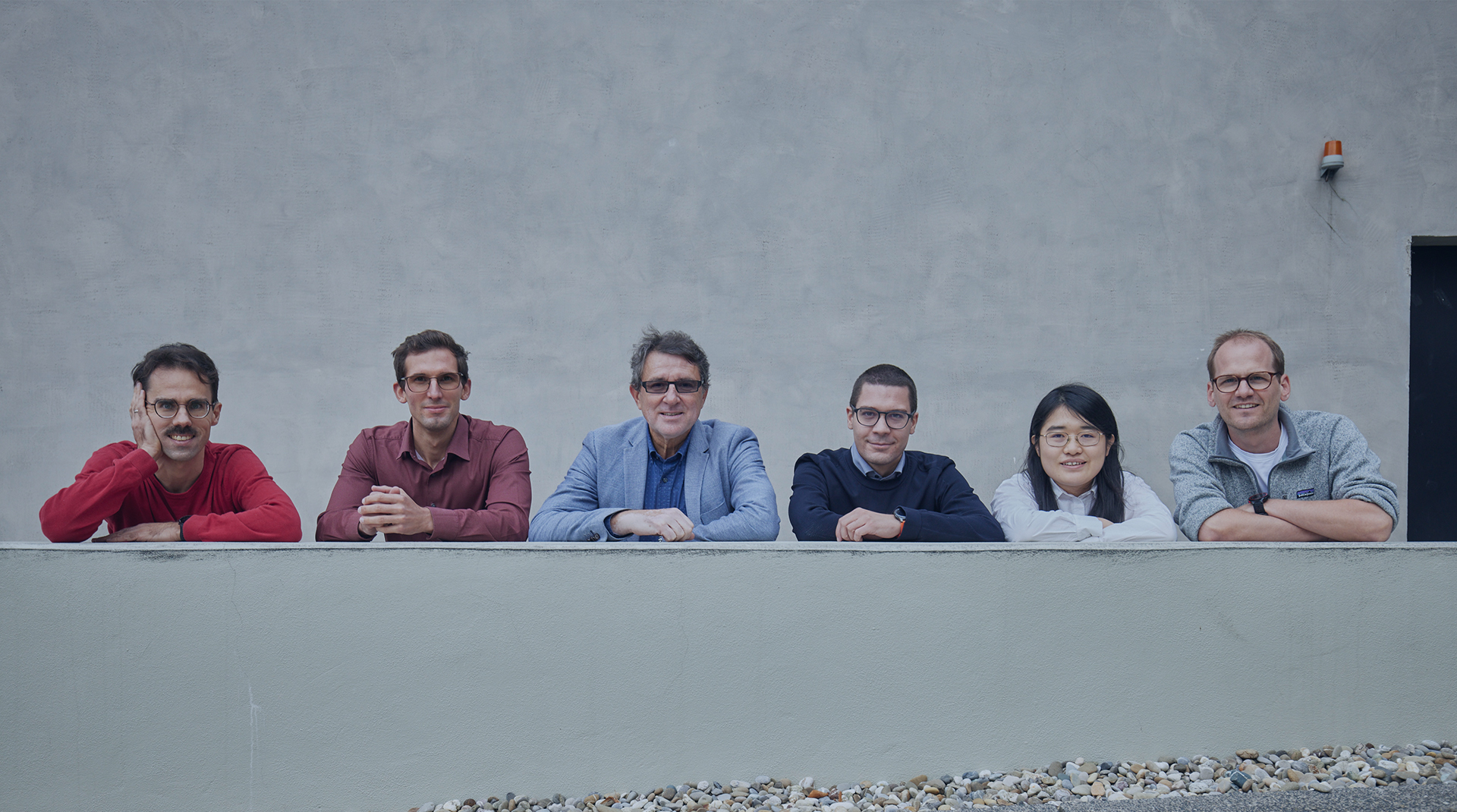
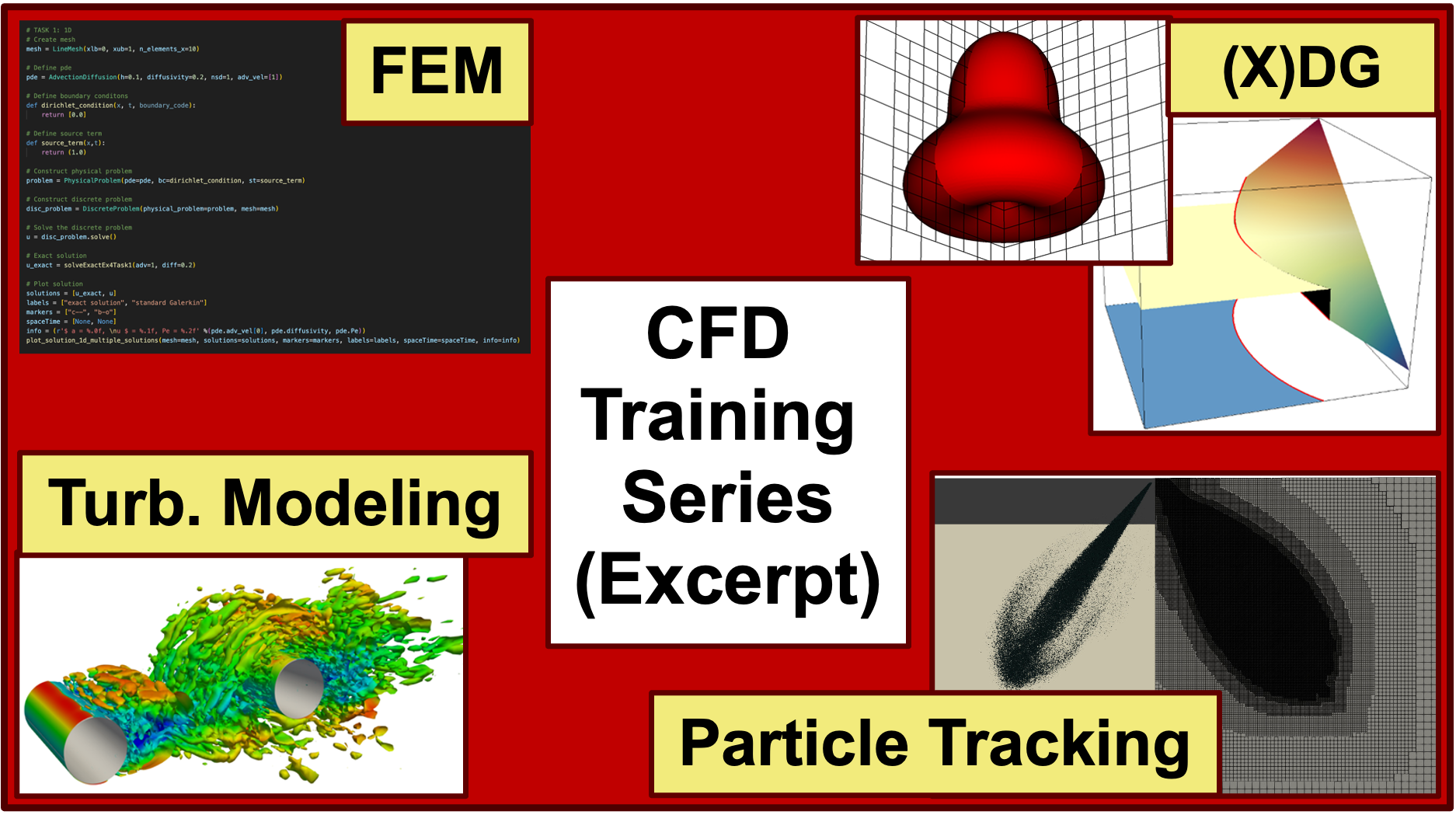 Excerpt of the competence range communicated via the new training series organized by the SDL Fluids.
Excerpt of the competence range communicated via the new training series organized by the SDL Fluids. 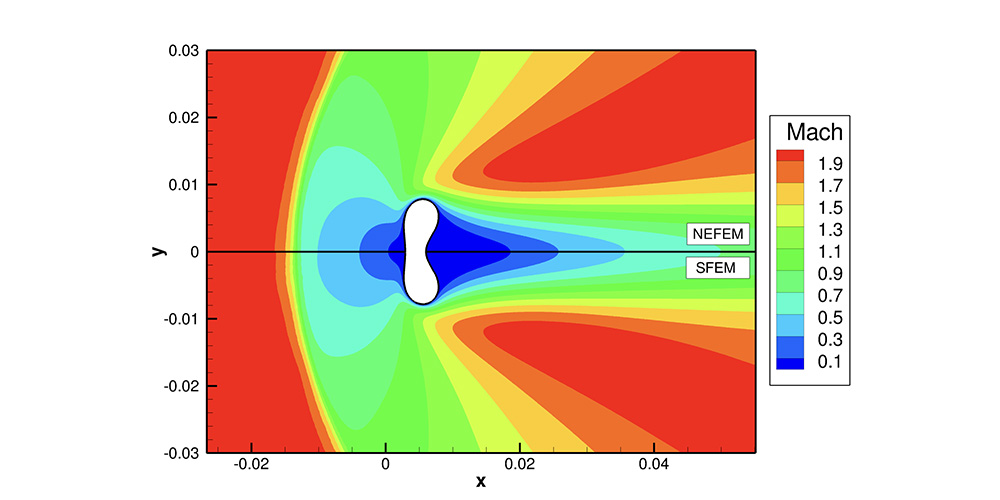 Spline-based FSI simulation of flow around flexible thin-walled cylinder (© Michel Make)
Spline-based FSI simulation of flow around flexible thin-walled cylinder (© Michel Make) 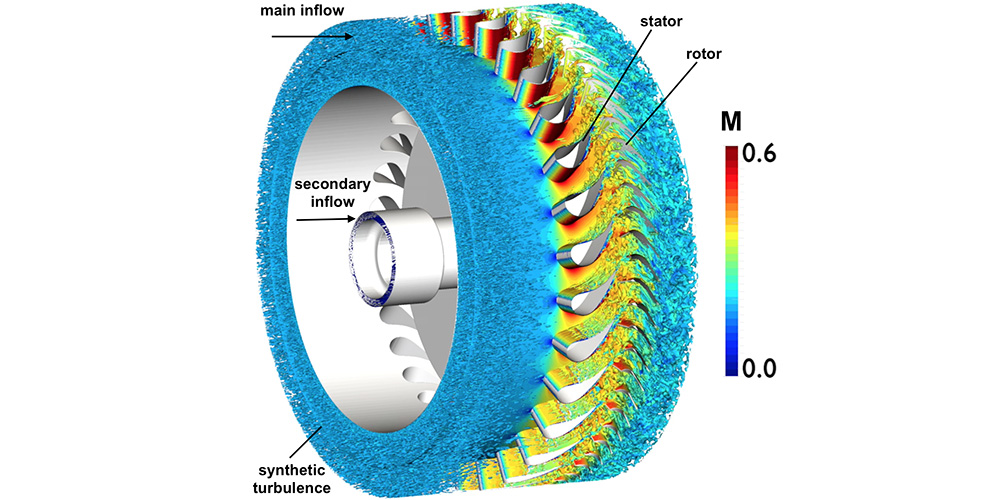 Q-criterion of turbulent flow in a one-stage axial turbine colored by local Mach number (© Wolfgang Schröder, RWTH)
Q-criterion of turbulent flow in a one-stage axial turbine colored by local Mach number (© Wolfgang Schröder, RWTH) 